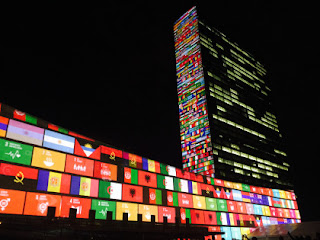information on Septembers High Level Events at the UN
Here is an update on the information that is currently available on the SDG Summit, as well as other summits, meetings and events taking place at UNHQ between 17 and 27 September 2019. The SDG Summit website will be regularly updated. The latest information on the SDG Summit can be found here. Important UNGA Dates 2019 17 September Opening of the United Nations General Assembly (UNGA) regular session N/a 21 September UN Youth Climate Summit ...




